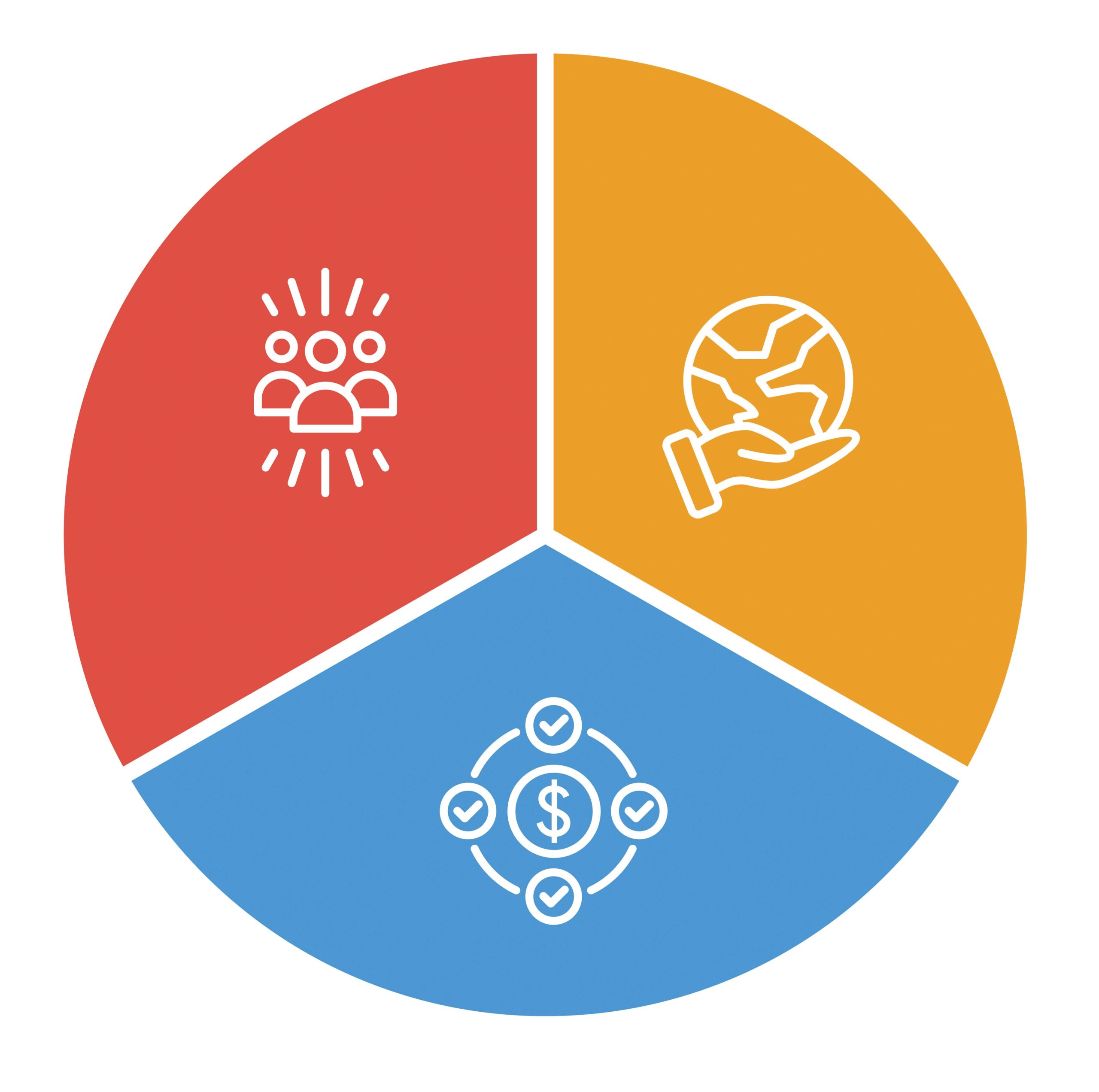When Lloyds Bank took out a full-page advert in the Financial Times ahead of COP26, the message was clear: businesses bidding for public contracts must address the S in ESG – the social dimension of Environmental, Social and Governance, or sustainability.
Sustainability is too often seen in terms of carbon emmission or climate change agendas. Net zero matters, of course, but it risks excessive focus whilst other issues – fair pay, employee wellbeing, ethical governance – are overlooked. True sustainability requires a triple bottom line approach: people, planet and profit.
The triple bottom line
This idea is not new, yet many firms still fail to embed it into their strategy and business model. In practice it means:
- People: staff wellbeing, diversity and inclusion, fair contracts and community engagement are every bit as important as carbon targets.
- Planet: environmental stewardship goes wider than carbon – water, waste and energy efficiency feed directly into the profit and loss account.
- Profit: long-term profitability is built on ethical practice and sustainable value creation, not short-term gain.
McKinsey has shown that companies who embrace stakeholder capitalism outperform those who do not, because they generate long-term value for all stakeholders, not just shareholders.
Making sense of the alphabet soup
The ESG landscape is filled with initials: TCFD, GRI, SASB, CSRD, B Corp, the UN SDGs – the list is endless. While these frameworks help, they can also confuse. The key is to consider ‘double materiality’: focus on the issues that matter most to your business and to your stakeholders.
The Good Business Charter is a good starting point, with ten straightforward commitments, from paying the Real Living Wage to ethical sourcing and prompt supplier payment. Likewise, the IoD’s Code of Conduct, with its six key points, promotes leadership, integrity, transparency, accountability, fairness and responsible business – principles which should help rebuild trust in UK business.
Environmental standards are well known and established. Water, waste and energy management are signs of good housekeeping, if managed well, good for business as well as the planet. The new frontier is to measure and create social value – ensuring fair pay, job security, employee voice and community engagement alongside climate action.
The risk of greenwashing may arise when companies publish net zero targets but neglect the basics of employee, community and social responsibility, and overlook ensuring a positive social impact.


Chair, IoD National Sustainability Group
Chair, Be. Partners Ltd
Boards to lead – with public procurement benefits
The shift from shareholder to stakeholder capitalism is already firmly embedded in UK Government procurement rules, requiring businesses to evidence their social impact in their tenders. Companies that can measure and communicate their wider societal value will gain reputational advantage, attract and retain talent, and benefit from lower costs of capital.
Key questions every board should ask itself include:
- Are our employees engaged, valued and productive?
- Are we supporting our local communities in meaningful ways?
- Is our governance structure ethical and robust?
Sustainability can no longer be left to a single ‘champion’ on the board. Each and every director must understand and commit to triple bottom line thinking.
That means embedding sustainability across all strategy and business models, as a value creation mechanism.
Paul Polman, former Unilever CEO, urges companies to go beyond ‘do no harm’ and become net positive – actively leaving the world better off . This requires bold leadership, transparency, collaboration and long-term vision.
It is worth noting that ESG has taken a reputational knock in some markets, particularly the US, where political polarisation has turned ESG into a lightning rod for criticism. Yet in the UK and Europe, the direction of travel remains clear: ESG and sustainability are here to stay, even if the vocabulary and politics around them evolve.
Sustainability is not just about carbon and compliance.
It is about planet, people and profit –in a way that is integrated, balanced and aligned. Businesses that act upon this challenge are more resilient, more trusted and more competitive. Those that don’t risk being left behind.
To find out more, contact Adrian Pryce on 07720 297402 or email adrian.pryce@northampton.ac.uk or visit the Be. Partners website.


















